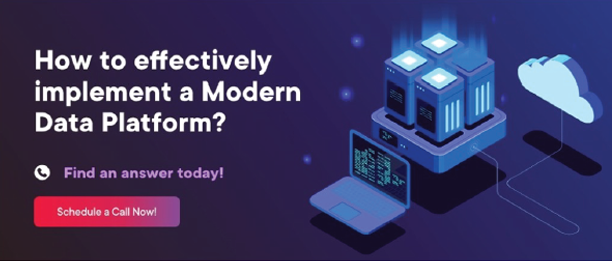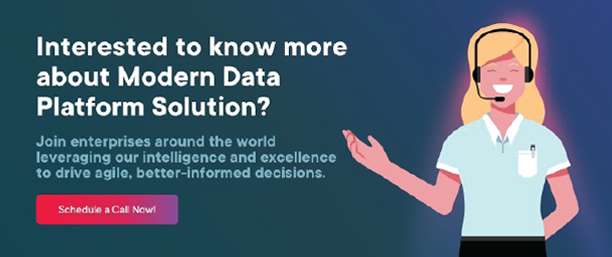Modern Data Platform vs. Traditional Data Platform: Where to invest your time and money?

Affine’s Analytics Engineering Practices releases Episode 3rd of Modern Data Platform, unbinding muddles between traditional and modern data platforms.
We explored data-driven strategy and the characteristics of modern enterprises in previous episodes of the Modern Data Platform series. Let’s take a closer look at some contemporary data-driven difficulties and see how traditional and modern techniques compared.
What are the bottlenecks of Traditional Data Platform?
Traditional data platforms fall behind the cloud on various factors. Organizations traditionally relied on in-house infrastructure to drive innovation and manage their workflow. Businesses would manage their in-house infrastructure and be accountable for everything, following traditional data platforms. The administration was taken care of by the in-house IT professionals. It was the business’s responsibility for downtime and repairs. We can say that managing the traditional data platform used to be an expensive affair.
Businesses had to take various responsibilities, like planning, people, hardware, software, and the environment. From a scalability perspective, it was possible, but it comes with the price of various challenges and delays hindering the performance of the enterprise’s overall data management.
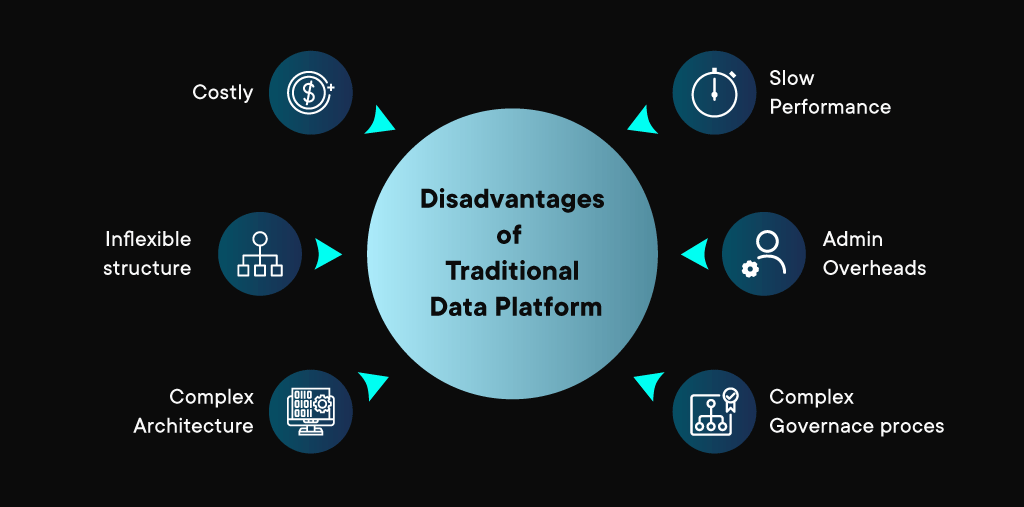
Why should you consider cloud as a substitute option for Traditional Data Platform?
For instance, the traditional methods are still working effectively for many businesses, with a certain level of complications and challenges. Perhaps, the effectiveness gradually decreases as the business landscape changes with technology disruption. The modern approach (cloud data platform) has a unique pace and benefits that can accommodate many inconsistencies at a time. The significant differences between the traditional and modern data platforms are highlighted in the table below:
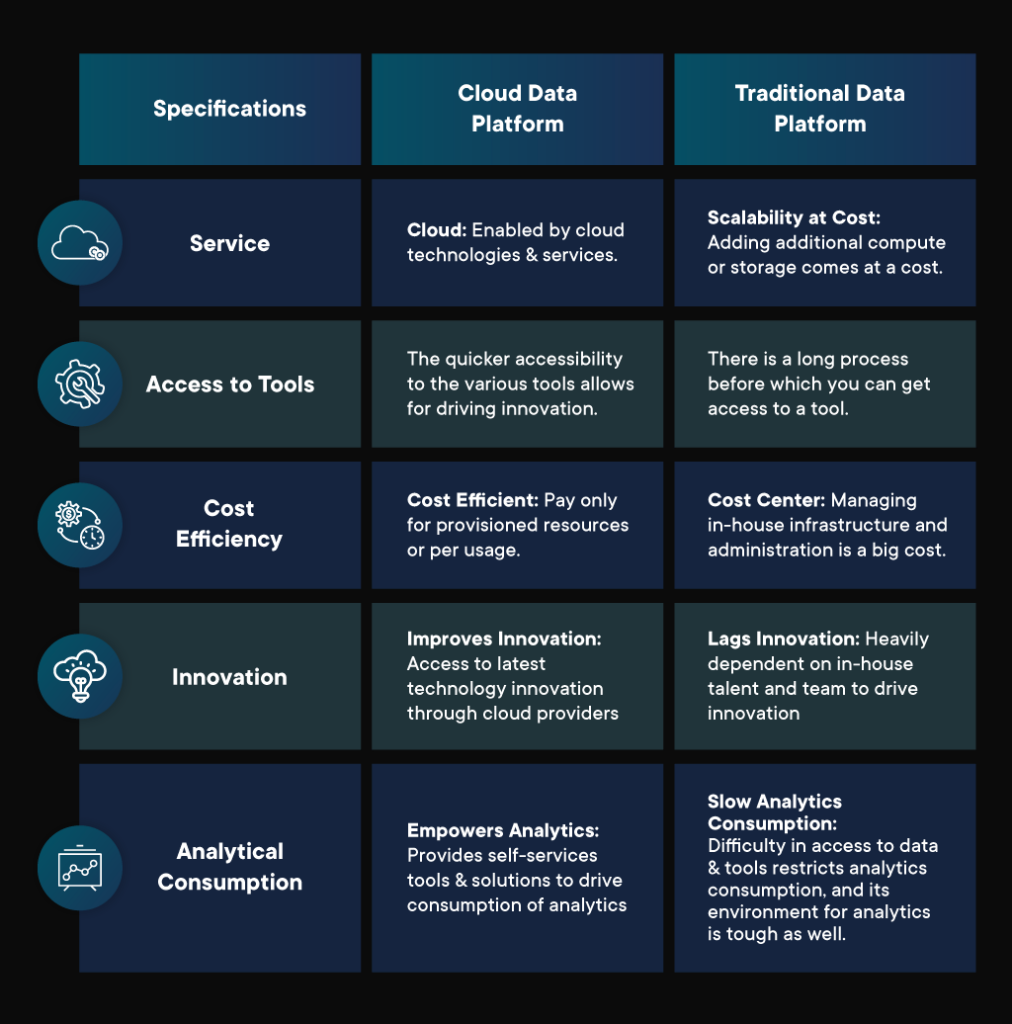
How can Cloud Solutions boost your Modern Data Platform (MDP) Journey?
The cloud data platform is easing the use of data and securing it for every business. It provides various components and services like databases, software capabilities, applications, etc., that are engineered to leverage the power of cloud resources to decipher business problems. What are the benefits that businesses can achieve using Modern Data Platforms? There are numerous benefits of MDP. Quicker time to develop and storage cost are a couple of crucial factors. Let’s take a look at other factors that comes into consideration.
Compute
It allows users to rent virtual computers to run their applications. IaaS has infrastructure and hardware running in the cloud. PaaS has application platforms and databases in the cloud. Containers are isolated environments for running software, and serverless functions compute services to run code in response to events.
Database
A database service built and accessible through the cloud platform. It hosts databases without having to buy dedicated hardware. It can be managed by the user or as a service operated by a service provider. It can support relational and NoSQL databases. The database can be accessed from- anywhere through a web interface or an API.
Storage
It allows users to store and access data over a network, typically the internet. The cloud data platform offers flexible, pay-as-you-go pricing. Scalable up/down in near real-time. It supports backup, disaster recovery, collaboration/file sharing, archiving, primary data storage, and near-line storage.
Networking
Clients seek services that isolate resources, protect internet-facing workloads, and encrypt data on the network. Other networking aspects of a cloud platform include load balancing, content delivery networks, and domain name services.
Comparison of Cloud Service Providers
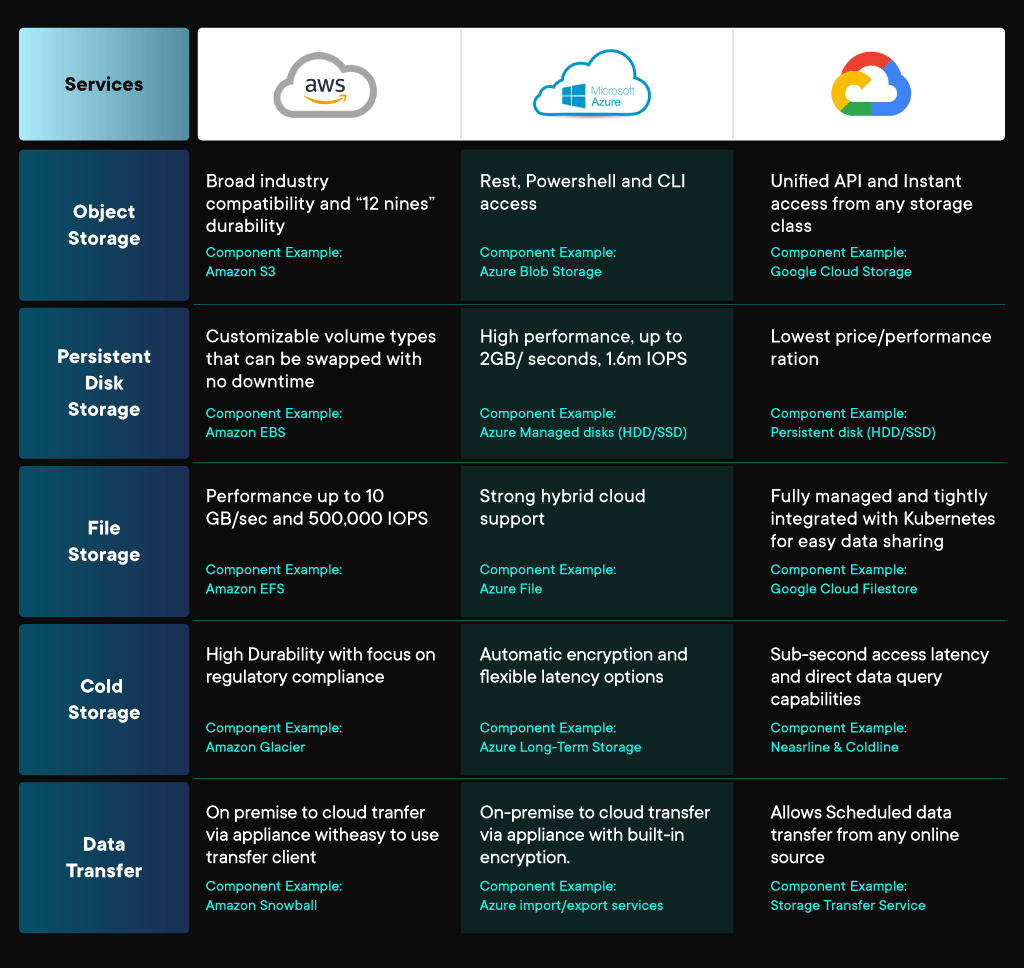
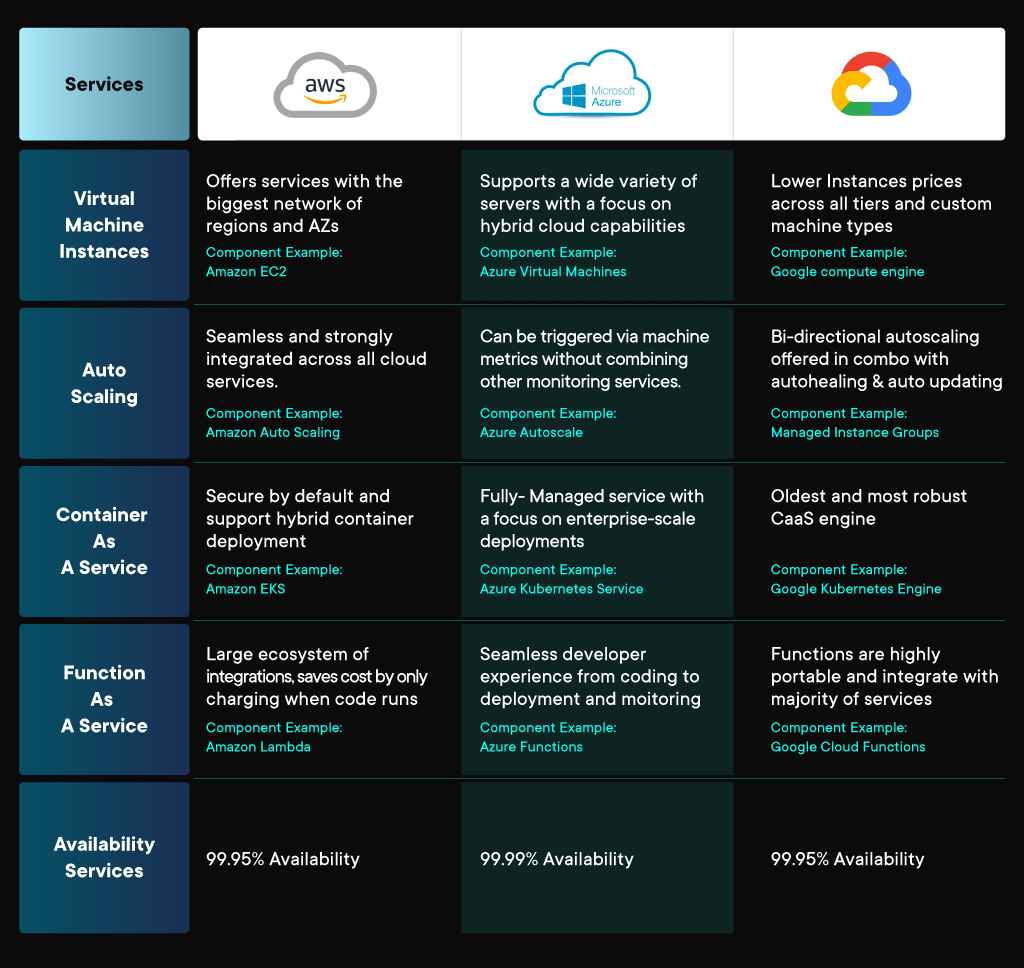
The Modern Data Platform is a future-proof architecture for business analytics. It is a functional architecture with all the components to support Modern Data Warehousing, Machine Learning, AI development, real-time data ingesting and processing, etc., and to leverage this, businesses need Cloud service providers who could provide services ranging from complete application development platforms to servers, storage, and virtual desktops. Based on the requirements, these providers are shortlisted to maximize the benefit to the enterprise. The cloud data platform helps enterprises extract high-value results to serve their customers in a data-driven future.
Affine’s Analytics Engineering practices can help with this seamless and effective transformation. Are you ready to embark on your journey to true data-centricity? We are here to help. Setup a call now!
The Modern Data Platform itself has proved as an asset to enterprises. So, what kind of data strategy and roadmap is needed to execute cloud-based solutions?
Well, that is the story for the next episode of the Modern Data Platform Series.
Till then, keep reading:
Episode 1: What Is Modern Data Platform? Why Do Enterprises Need It? – Affine
Episode 2: What are legacy systems? How Can Modern Data Platforms Bring Revolutionary Change? – Affine
About The Author(s):
The Modern Data Platform blog series is a part of research efforts conducted by the AE-Practices, which exists solely for hyper-innovation in the Analytics Engineering space.
Our AE Practices is a dedicated in-house team that caters to all R&D needs. The team is responsible for continuously working on research tools and technologies that are new, happening, futuristic, and cater to business problems. We build solutions that are both cost and performance effective. Affine has always been deeply invested in research to create innovative solutions. We believe in delivering excellence and innovation, driven by a dedicated team of researchers with industry experience and technology expertise. For more details, contact us today!
